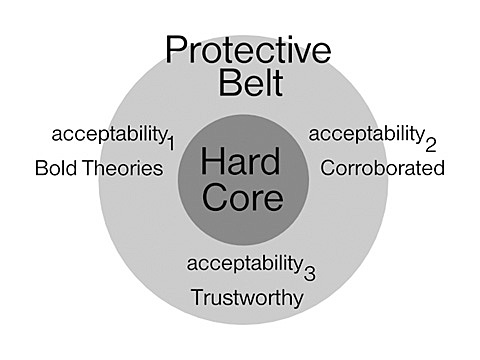Whenever someone tells me that consciousness will soon be solved by a new neuroscience or physics I tell them to read history a little more carefully. Here& #39;s a short thread on the rise and fall of logical positivism and analytical behaviorism.
Thread.
Thread.
In the early part of the 20th century philosophers were highly impressed by advanced in physics, particularly because of Einstein theory of relativity. They were also unimpressed by genermsn idealism which for them led to nationalism and Romanticized nonsense.
Inspired further by advances in logic by Russel and philosophy of language by wittgenstein, they sought to reform philosophy in light of science. To do this a group philosophers who came to known as the logical empiricists developed a new theory of language.
A new theory of meaning known as verifiablity theory of meaning of established. A statement was either analytic (true by definition) or synthetic (true in virtue of how the world actually was).
For a sentence to be meaningful it had to be verified by observational experience.
For a sentence to be meaningful it had to be verified by observational experience.
This immediately meant that poetry, stories etc became quite literally meaningless. The aim was to do away with the confusing nonsensical philosophy espoused by Hagel and Heiddegar. It wasn& #39;t that their philosophies didn& #39;t make sense they were literally meaningless altogether.
The logical empiricists almost immediately faced issues. How would terms like electrons which can& #39;t be observed become meaningful? To do this they said that any theoretical observation could be reduced to an observable one such as acidity = blue litmus paper turning red.
This did not turn out well for them as (1) they had to show such a reduction was possible and (2) that for any logical state where "if P then Q" logicians must also accept that "if not P then Q" confirms the former. Thus many things not acidic also confirm the above statement.
A major blow came from Quine who argued about holism in meaning. This had profound consequences for Poppers falsifiability in philosophy of science as well. Any observational statement can not be tested in isolation and will depend on other statements. Q
Quine also argued that our distinctions of the analytic vs synthetic statements were also false and that analytic statement were subject to revision. Logical empiricism then tried to in complicated ways resolve the issues put infront of it but by the 1970& #39;s had mostly died out.
The aim of the movement with regards to science was to wipe out metaphysics. They wanted a series of statements that connected observations to theories. Unfortunately, they realized quickly this simply could not be done without metaphysics being somewhat involved.
An interesting side effect of this movement was in psychology promoted most by B.F Skinner known as analytical behaviorism. According to Skinner mental events just were (observable) behavioural events. Such that the predicate describing the mental events were behavioral ones.
This was most certainly inspired by the logical empiricists and their verafiability theory of meaning. The movement however was bound to fail since there& #39;s obviously something it feels like to have pains, sensations, and experiences. Not all mental events are publicly observable.
A good example of this is to consider the following example - although there are several good objections to analytical behaviorism.
Imagine a man hates his wife and wants to kill her but has to carefully plan the murder. He brings his wife and smiles.
Where& #39;s the behaviour?
Imagine a man hates his wife and wants to kill her but has to carefully plan the murder. He brings his wife and smiles.
Where& #39;s the behaviour?
The aim of describing all of this is to highlight a glaringly simple fact: it doesn& #39;t matter how much you modify or tweak your theory, if the underlying structure and premises it uses are flawed then the whole theory is flawed. This is definitely the case with consciousness.
A good way to illustrate this it to turn towards the ideas of Imre Lakatos. The diagram below represents a scientific theory. The core consists of the main ideas whereas the outer belt represents ideas that can be changed to adjust the theory to new developments.
If we accept Lakatos& #39;s picture what we notice is that no attempt in changing the protective belt will save materialistic theories of consciousness because the "hard core" itself is flawed.
The hard core here being that consciousness is reduced or supervenient on the physical.
The hard core here being that consciousness is reduced or supervenient on the physical.
That& #39;s why a number of material philosophers of Mind such as Philip Goff, Thomas Nagel, and David Chalmers, have accepted panpsychism. The idea that consciousness is a fundamental feature of reality that can& #39;t be reduced. Hence even simple matter has proto-consciousness.
The aim of this thread is not to deal with those specific objections because the argument addressed here is that some future neuroscience or physics will. I am trying to point out that if the "hard core" remains the same it doesn& #39;t matter because any further approach is doomed.
To substantiate my argument against this I have provided concrete historical examples of movements that made the same claim. It isn& #39;t enough to say some future argument will resolve consciousness. We must address the heart of the issue and what& #39;s really at stake.
End/
End/
@threadreaderapp unroll

 Read on Twitter
Read on Twitter


